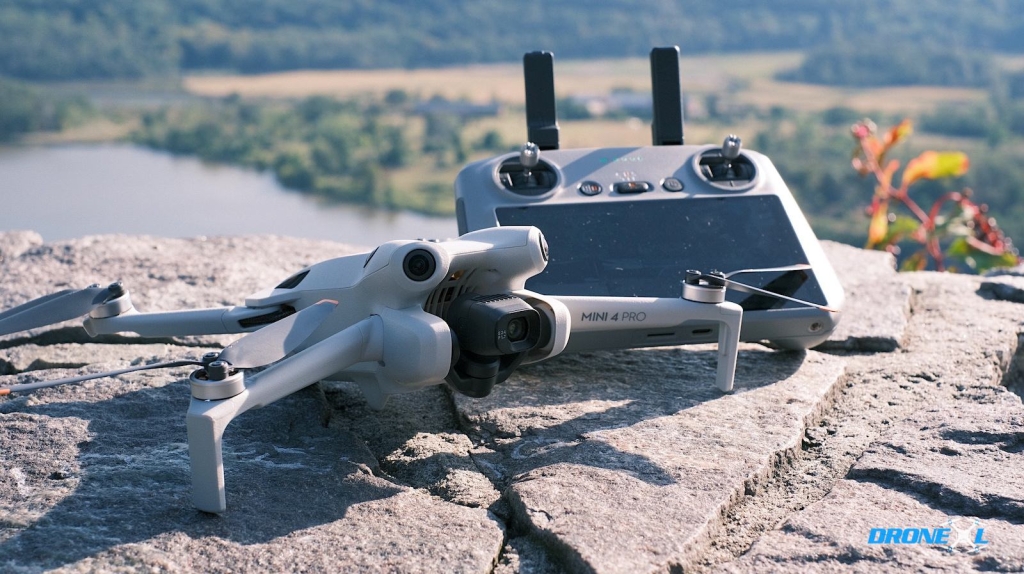Transport Canada Clears Municipal Drone Flight After Skydiving Company Safety Complaint

Transport Canada has completed its investigation into a drone safety complaint filed by Skydive Wasaga Beach and determined the town’s micro drone operation during a fall fair was conducted safely and responsibly, according to CTV News. The investigation effectively closes the file on concerns that sparked tension between the Ontario municipality and a local commercial skydiving operator.
The dispute highlights growing challenges for municipal drone programs operating near commercial aviation activities, particularly under new Canadian regulations that took effect in April 2025.
The Complaint and Investigation
The conflict began during Wasaga Beach’s First Annual Mayor’s Charity RAM Rodeo and Hootenanny Fall Festival when the town flew a micro drone to capture aerial footage of the event. Skydive Wasaga Beach filed a complaint through Transport Canada’s Aviation Daily Occurrence Reporting System, alleging the drone operated dangerously close to an active parachute landing zone without proper authorization.
Leslie Farkas, who has operated Skydive Wasaga Beach for over a decade, claimed the town “would have had to file for the permit from Transport (Canada) 14 days prior” and would have required his permission to operate in the area. The company argued the drone flight posed a risk to parachutists and warranted immediate investigation.
Transport Canada’s Findings
According to the town’s statement, Transport Canada’s assessment confirmed “the Town’s micro drone operation was safe and responsible,” effectively closing the investigation. The agency determined the 249-gram (8.8 oz) drone was operated under full visual line of sight at an altitude below 100 feet (30.5 meters) for a very short duration.
Transport Canada also confirmed “the airspace was not restricted at any time” and “the Town is not required to obtain approval from Skydive Wasaga before flying.” The agency indicated it has “no intention of pursuing this matter further.”
Mayor Brian Smith had previously defended the operation, noting the drone flight occurred under controlled conditions with a certified pilot maintaining constant visual contact with the aircraft.
New Regulations for Municipal Drone Operations
The incident occurred just months after Transport Canada implemented major regulatory changes in April 2025. The new rules require Special Flight Operations Certificates (SFOCs) for micro drones operating at “advertised events” — defined as outdoor events advertised to the general public, including concerts, festivals, markets, and sporting events.
The town has since taken steps to secure the necessary certification for future events. “The Town says it has already taken steps to secure the necessary certificate required under new regulations introduced in April for future events,” according to the municipal statement.
These regulatory changes represent a significant shift for municipalities using drones for community engagement and event documentation, adding compliance requirements that previously didn’t exist for micro drone operations.
Lease Dispute Adds Complexity
The investigation became further complicated when Skydive Wasaga Beach’s lease with the town was not renewed. Farkas claims he received an email from the town shortly after filing the complaint stating, “As a result of the safety concerns that you have brought to our attention, the Town will not be renewing our lease with Skydive Wasaga Beach.”
However, town officials categorically deny retaliation. Wasaga Beach CAO Andrew McNeill stated the lease decision reflects broader considerations, “including that the land is leased at below market value (and) that the Town is preparing a new events strategy and expects to use and program this municipal property.”
The town emphasized “Public safety remains our top priority,” adding that its micro drone would have been grounded immediately if any legitimate safety concerns had arisen. A report summarizing the findings will be presented to Council shortly.
DroneXL’s Take
This case reveals an emerging friction point in Canadian airspace: municipal drone programs operating in proximity to established commercial aviation operations. While Transport Canada sided with the town, the dispute raises legitimate questions about coordination protocols.
The new SFOC requirements for advertised events — which DroneXL covered when announced in March 2025 — add another layer of complexity for municipalities trying to document community events. With micro drones previously enjoying minimal regulatory burden, these operators now face paperwork and advance planning requirements that commercial operators have long navigated.
The timing is particularly notable. This incident occurred after the April regulatory changes took effect, suggesting municipalities may still be adjusting to the new compliance landscape. The town’s statement that it has since secured proper certification indicates the regulatory framework is working as intended, though perhaps with some growing pains.
Looking forward, this case could set important precedents for how municipalities and commercial operators share airspace. The key question: should local skydiving operations have veto power over municipal drone flights in their vicinity, or is Transport Canada’s determination of “not restricted at any time” the final word?
What do you think? Share your thoughts in the comments below.
